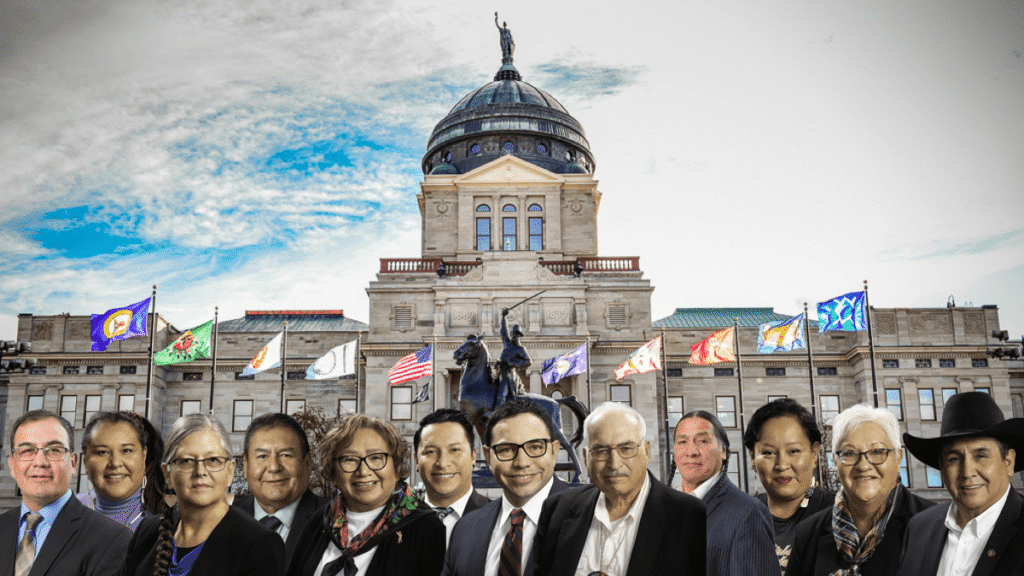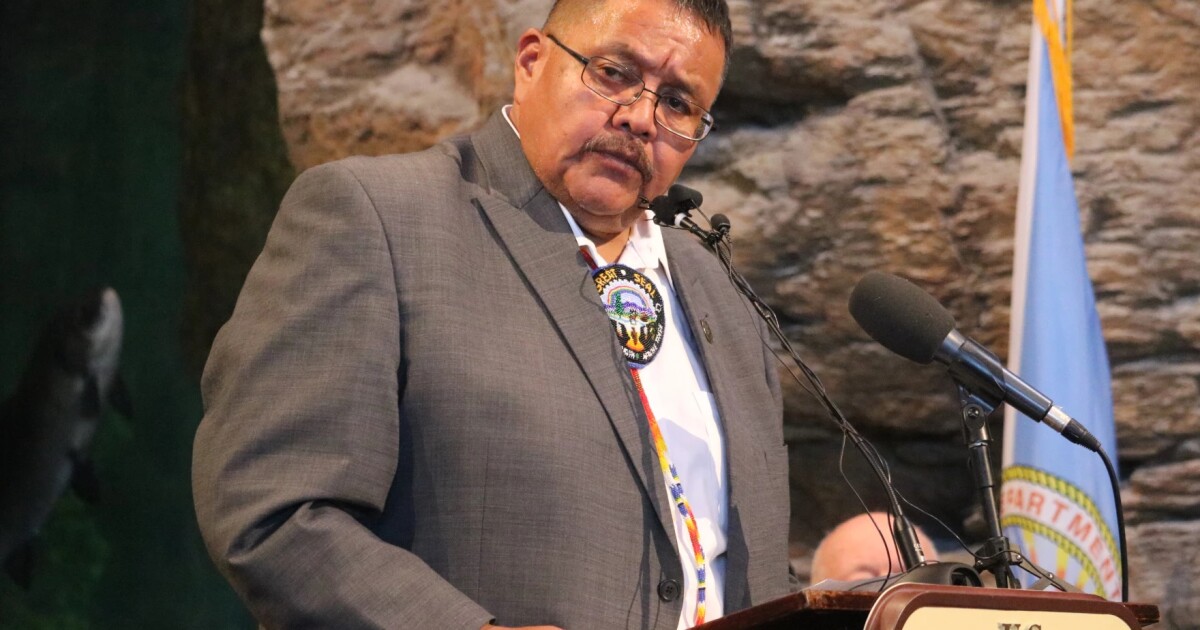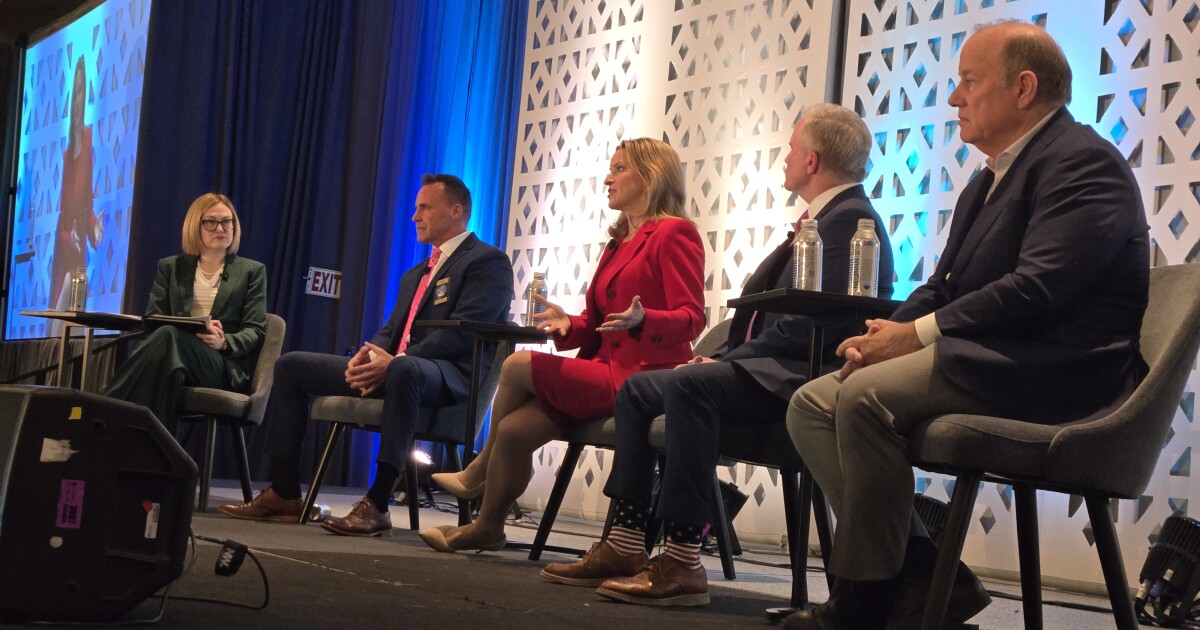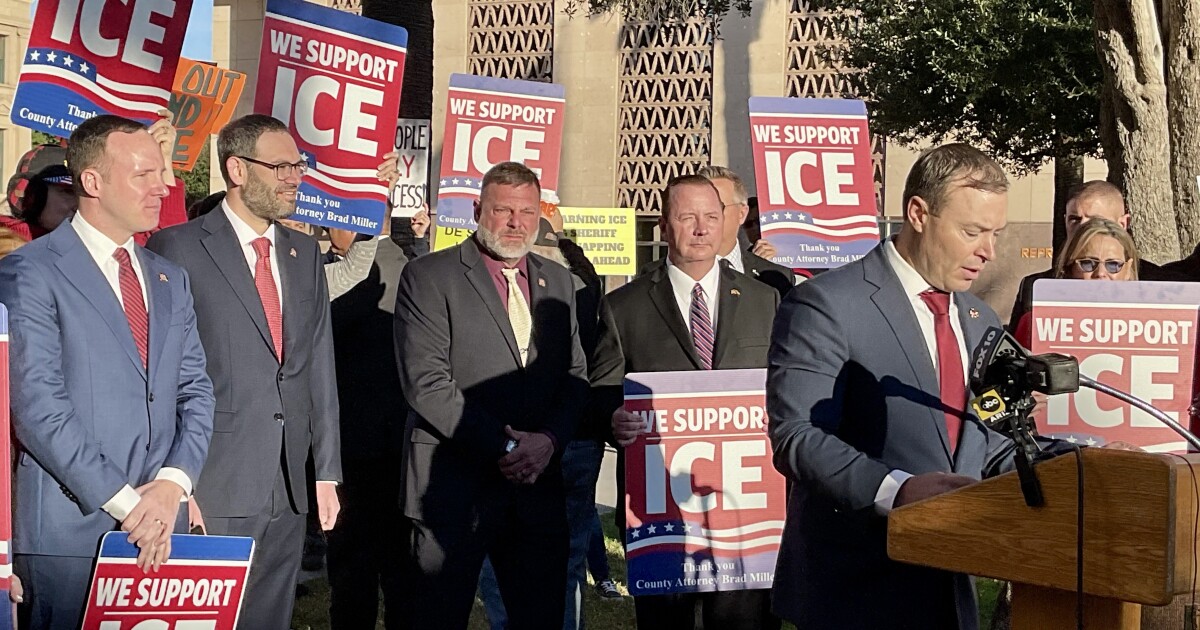Montana’s American Indian Caucus achieved historic success during the 2025 legislative session. Comprising about a dozen Native American lawmakers, the caucus aims to advance legislation beneficial to Indian Country and Montana as a whole. Despite being a Democratic minority in a Republican-dominated Legislature, the caucus succeeded in passing key bills by working across party lines. This year marked a significant legislative milestone for the group.
The caucus made history by establishing Indigenous Peoples Day as a state holiday after a decade-long effort. They passed laws extending the Montana Indian Child Welfare Act and enhancing oversight of the Missing and Murdered Indigenous Persons Advisory Council. New accountability measures for Native American education funding were implemented, along with a resolution to a law enforcement dispute involving Lake County and the Confederated Salish and Kootenai Tribes.
Governor Greg Gianforte signed a law continuing Montana’s Medicaid expansion, impacting 13,000 to 18,000 Native Americans who would otherwise be uninsured. A new law allows doulas to bill Medicaid, potentially improving health outcomes in rural and tribal areas. The state budget, yet to be signed, includes increased funding for tribal colleges and repatriation efforts, though line-item vetoes are possible.
Internal dynamics and GOP infighting contributed to the caucus’ successes. With a slimmer Republican majority and Senate turmoil, some moderate Republicans aligned with Democrats, aiding caucus priorities. Notably, Sen. Shane Morigeau’s Senate Bill 311, enhancing state-tribal relations education, became law, mandating training for lawmakers on tribal issues.
Efforts to reestablish a tribal relations manager within the state health department faced challenges. While the position was cut in 2023, caucus members and tribal leaders pushed for its reinstatement, citing its importance for health policy inclusion. Though an amendment supporting the role was added to the budget, funding and implementation remain uncertain.
Despite signing a bill extending the Indian Child Welfare Act, the caucus opposed other child welfare legislation seen as detrimental to Native interests. House Bill 655, permitting religious discrimination claims in adoption services, raised concerns about undermining the Montana Indian Child Welfare Act.
Sen. Jonathan Windy Boy emerged as a key player, successfully passing multiple bills by collaborating with moderate Republicans. His focus on bipartisan cooperation, coupled with his long-standing legislative experience, proved instrumental in advancing caucus goals. Looking ahead, the caucus plans to concentrate on education, child welfare, and healthcare legislation, addressing areas lacking tribal consultation this session.
—
Read More Montana News









